Are You Ready for a Retriever?
Here’s everything you need to know before you decide to bring a puppy home
Here’s everything you need to know before you decide to bring a puppy home

By Teresa Milner
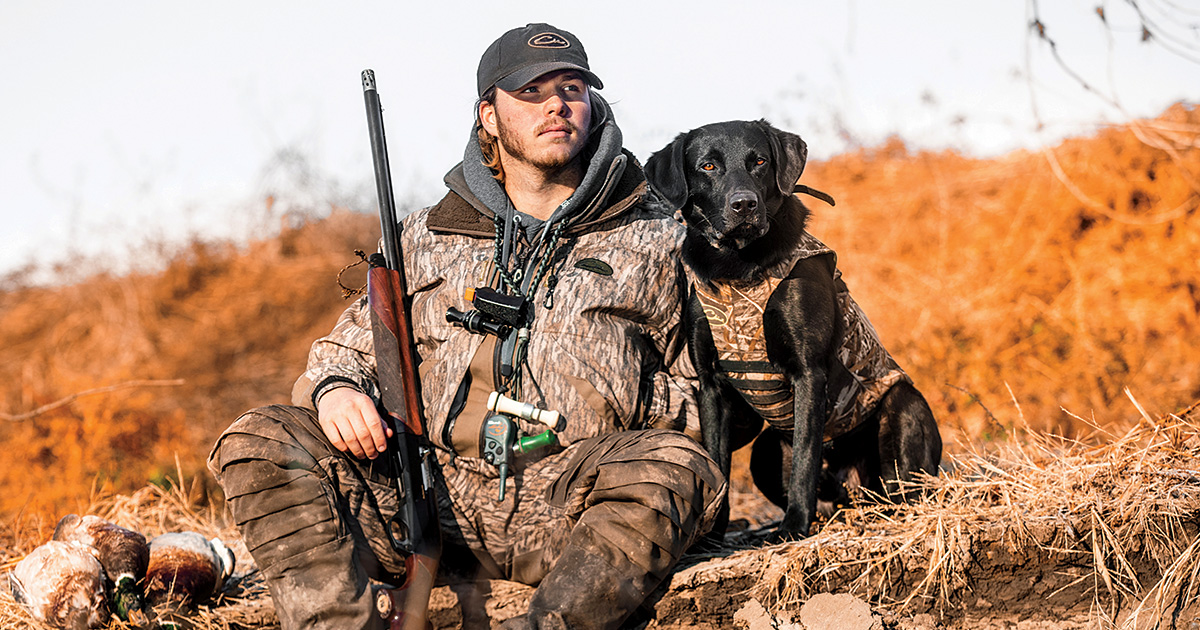
In addition to being your best friend, a well-trained retriever is a powerful conservation tool, because he can recover birds that might otherwise be lost.
Few things are as exciting, rewarding, and downright amazing as becoming a dog owner. Dogs bring so much to our lives. They can serve as friends, companions, hunting partners, and conservation tools. But adding a dog to your family is a big responsibility and commitment. So how can you make sure you’re ready, and how do you get started? We talked with experts to get pointers on finding, selecting, and training a hunting dog.
Penny Hutchison breeds Labrador retrievers and Australian shepherds in southeastern Wyoming. She and her husband, Larry, run Wyoming Super Dogs, selling high-performance gundogs to people across the country. Hunters from many different states use the Hutchisons’s dogs to pursue waterfowl and upland birds. Most of these dogs are also beloved family pets. Hutchison also teaches obedience classes to dog owners in her area.
“You need to be ready to make a long-term commitment to your puppy or dog,” Hutchison explains. “Dogs are living creatures. They require food, shelter, grooming, training, health care, time, energy, and love.” Hutchison says the whole family needs to be committed to dog ownership. You might be getting a puppy because you want a hunting companion, but your parents and siblings will have to be around the dog and will be involved in its care and costs.
Jessie Lee Richards believes that it is important to raise puppies in the house with your family. Richards breeds and trains hunting dogs at Full Throttle Kennel in Campbellsport, Wisconsin. “Dogs are social animals,” she explains. “They want and need to be part of your family. A lot of the behavioral issues in young dogs result from a lack of socialization.”
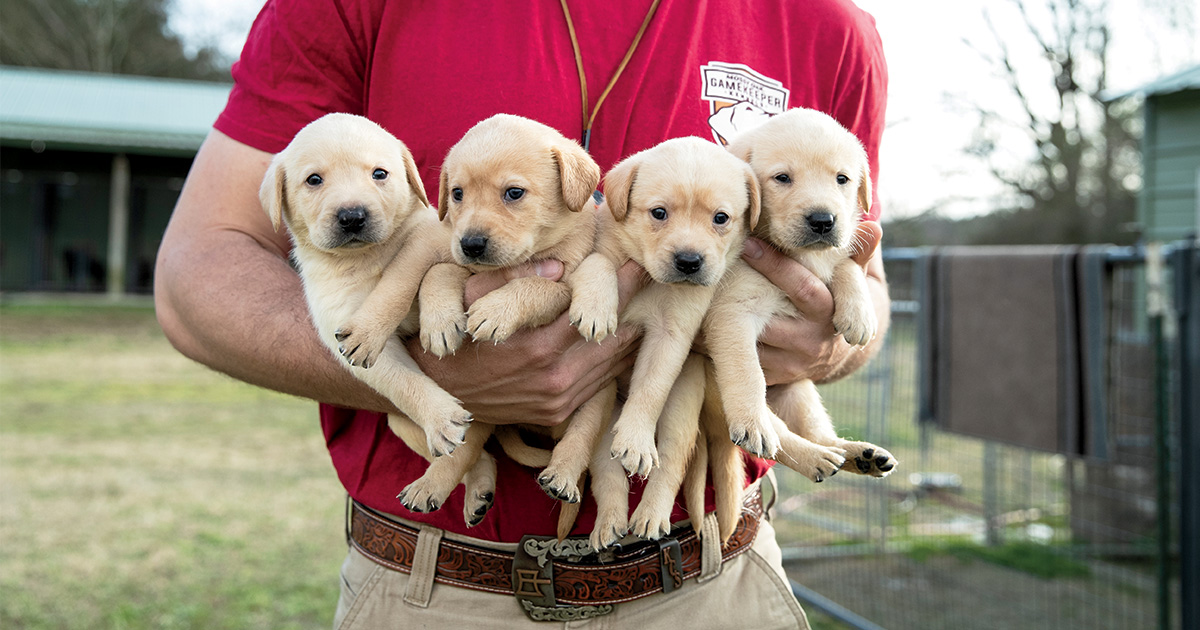
Do some research to determine which breed is the best fit for your lifestyle and type of hunting, and then find a breeder with a good reputation.
Hutchison recommends researching breeds to find one that is compatible with you, your family, and the type of hunting you do. “Lots of people decide what breed they want without ever really knowing a thing about it,” she says. An impulse buy could lead to disappointment and frustration down the road.
Hutchison says a great first step is to visit akc.org to learn about different breeds. That’s the website of the American Kennel Club, the national breed registry and trusted expert group when it comes to all things pertaining to dogs. There’s content on the website that will help you research breeds and find information on size, life expectancy, personality attributes, coat, and health concerns.
Choosing the right breed makes for a better experience for you and the puppy, Hutchison says. Some dogs are wonderful hunting dogs but require more training or a more experienced trainer, for example. “I think a golden retriever and a Labrador retriever are the easiest dogs to make into hunting dogs,” she says. “They care more about pleasing you than anything else.”
Does every hunting dog need to be a registered dog? No. There are wonderful hunting dogs of all breeds and breed combinations out there. But Richards says that owning a registered dog has some significant benefits. “Pedigree proves trainability and suitability,” she explains. “You know you’re getting a dog that can be trained for what you want it to do, and one that will stand up to the rigors of hunting.”
Richards says a pedigree also means knowing more about the health of your new puppy. “Along with pedigrees come health clearances for things like hips, elbows, eyes, genetic defects, and so on,” she says. “Not knowing a dog’s pedigree means not knowing what your puppy could have in its background.” She also says that dogs with field trial pedigrees can make excellent hunting companions.
Ultimately, though, it comes down to personal preference between pedigreed dogs, mixed breeds, or something in between. There are wonderful dogs available through shelters or rescues. If you feel called to adopt or rescue your next hunting dog, that’s a personal choice. Even when adopting, however, you should follow the recommendations here. Research the different breeds, get advice on good rescue programs, invest in high-quality dog food, follow your veterinarian’s recommendations, and make a serious commitment to training.
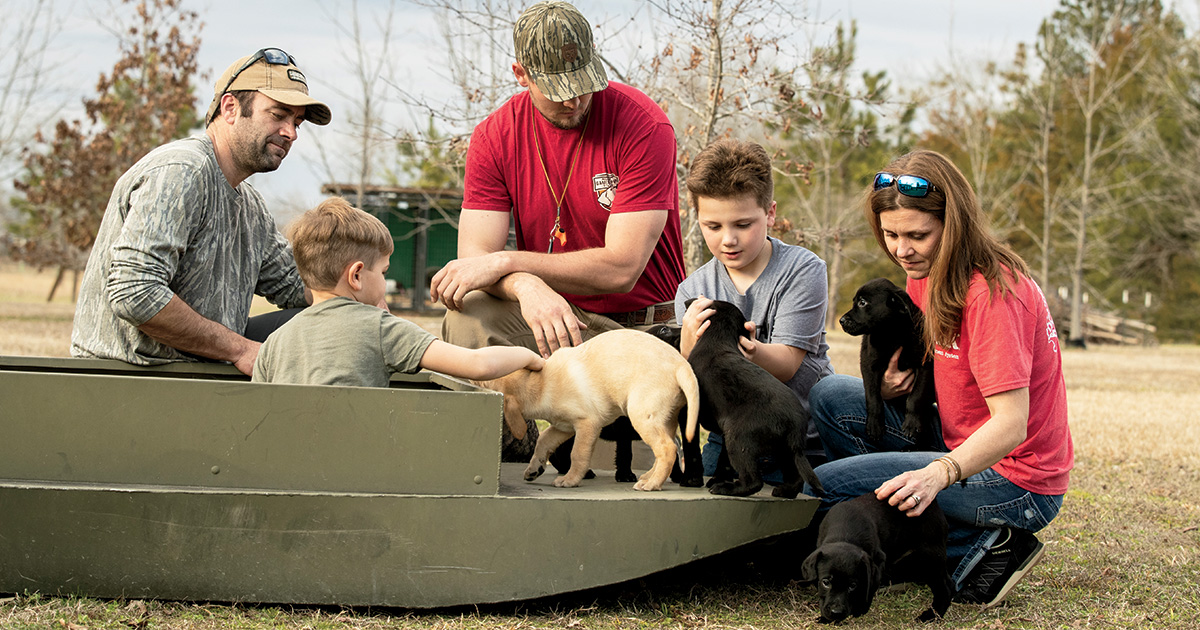
Make sure you understand how much time and money is involved in raising, training, and caring for a hunting dog before you decide the time is right for a new retriever.
Once you’ve decided on a breed, it’s time to find a good breeder. Again, akc.org can help with that, as can a Google search of breeders in your area. Hutchison recommends asking family and friends for recommendations, especially people who hunt with their dogs. “Know who you’re getting a dog from,” she says. Buying a cute puppy from a Facebook ad or a posting in your veterinarian’s clinic is a common way of finding a dog, but it’s not always the best choice. “How have the puppies been raised? Have they received good health care and nutrition? Are they genetically tested? Have they been socialized? You want to know all those things before buying a puppy,” Hutchison says.
Once you have the name of a breeder, do some additional research. Look at the breeder’s website and Facebook pages. Call veterinarians in the area and find out what kind of reputation the breeder has. Ask other hunters what they know about the breeder. Hutchison says your final step should be an interview with the breeder over the phone or via e-mail.
How do you choose an individual puppy from a pen of wriggling, writhing joy? Make sure to meet the puppy in the place where he was born and raised. You’ll get a better feel for the breeder and how they care for their animals. Also, look for a puppy that is confident and seems happy and interested in you. After that, Richards says, it’s personal preference.
A good breeder can help match the right puppy with the right family. Your breeder has been around the puppies from the day they were born. He or she knows their individual temperaments and can help you pick one that fits your needs.
“The basic needs of a puppy are the same regardless of the breed,” Hutchison says. “They all need good health care, high-quality food, grooming, safe spaces, and love. Create safe indoor and outdoor spaces for your puppy. Get those areas ready before you ever bring your puppy home. Hutchison believes a fenced yard is a must for dogs. “If you don’t have a fenced yard, hunting dogs will go hunting,” she says. “You want to keep them fenced so they don’t get lost or hurt.”
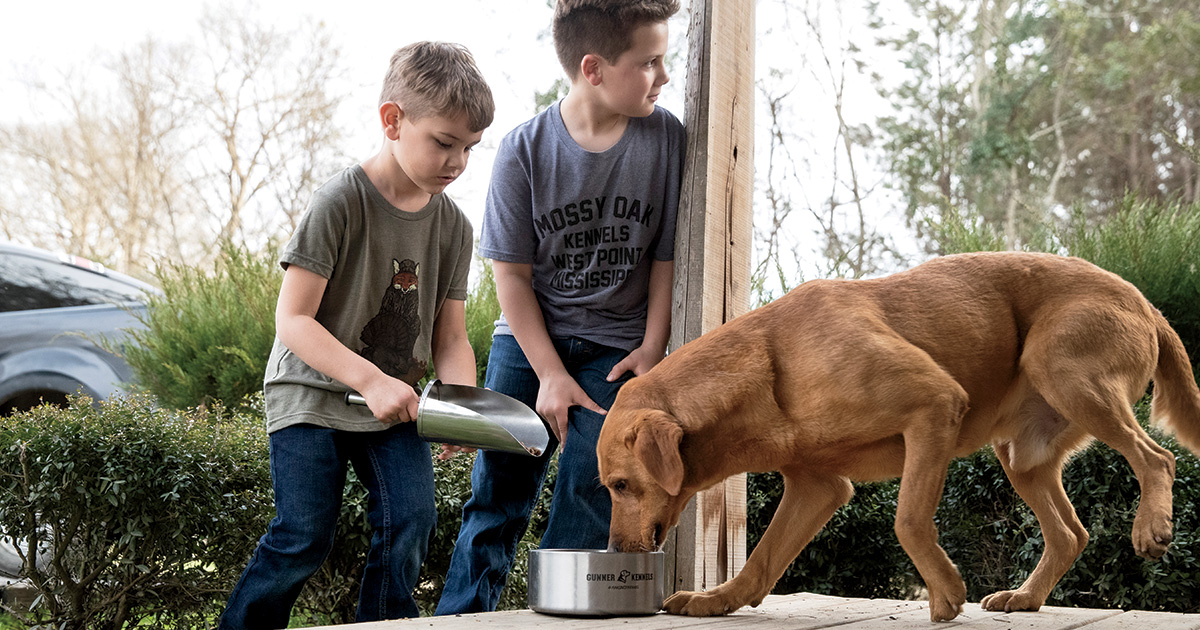
Make a commitment to take good care of your hunting companion. Feed him high-quality, nutrient-dense food, follow your veterinarian's recommendations, and train him well.
Investing in your puppy’s health and well-being with the right kind of dog food is important. It acts as fuel and helps ensure your puppy grows strong and healthy. Richards and Hutchison both believe in feeding high-quality, nutrient-dense food. Talk to your veterinarian or breeder about the brand and type of food that will be best for your new puppy.
“The two best gifts you can give your puppy are love and the right training,” Hutchison says. She sends her new puppy owners home with books by her favorite author and dog trainer, Richard Wolters. She’s been using his training methods since the ’80s and suggests Wolters’s Gun Dog and Family Dog for a family getting a hunting dog.
Obedience classes help train you as much as they train the dog. You’ll learn how to be consistent with commands, what commands to teach, and proven training methods. “Everyone should take a basic obedience class with their dog,” Hutchison says. “It’s good for socialization and just makes for a better dog the whole family can enjoy.”
Training a dog to hunt builds on basic obedience, Richards says. “Puppy training really begins the day you bring your dog home. They are like little sponges at about six to seven weeks of age and can start learning so much! If your dog doesn’t have a good foundation, formal training takes a lot longer.”
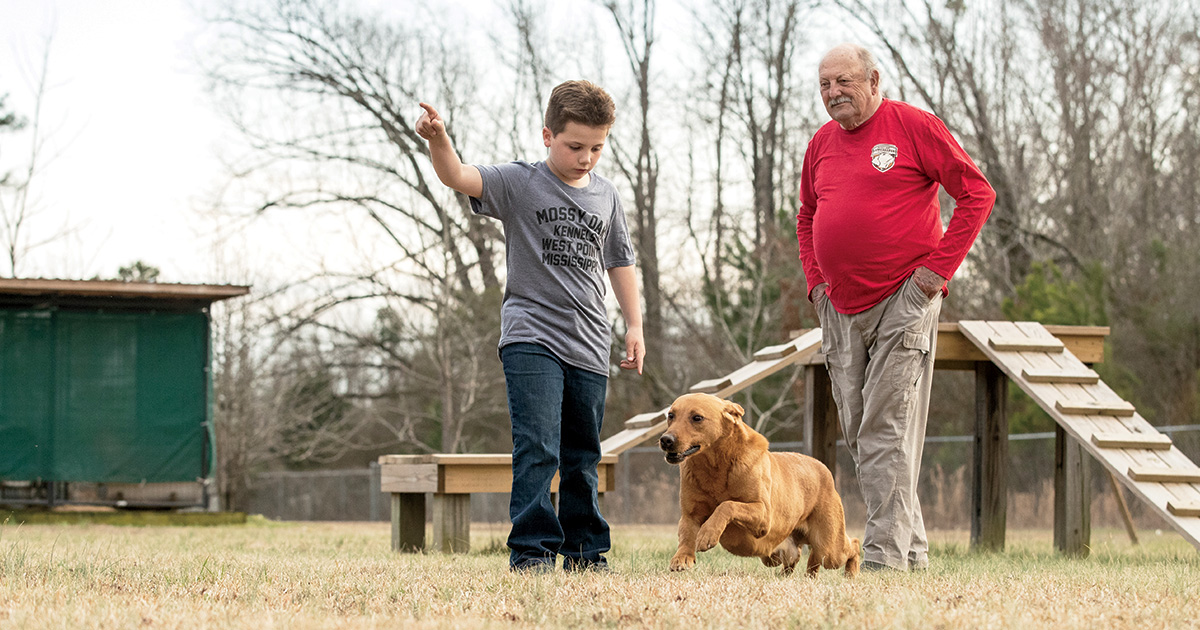
Training a retriever can be lots of fun. If you don’t have the time or knowledge to do it yourself, consider working with a professional trainer.
Until around six months, Richards says, training is a balance between letting your retriever explore and learn new things, instilling some basic obedience, and introducing retrieving. At around six months Richards begins formal training for hunting. You can train your own dogs, but hiring a trainer has many benefits, she says. “Working with a trainer is a great bang for your buck. A professional trainer makes training go smoother and faster. It’s a fast track to a high-performing, consistent dog.”
Training, especially when it includes the skills needed in a good hunting dog, takes time and consistent effort. These aren’t tricks your dog will pick up on in one session, but rather a system that builds on itself. If you don’t have the time or energy to devote to consistently training your puppy yourself, a professional training program may be ideal for you. The trainer can also teach you how to get the most out of your hunting dog by teaching you to be a great handler.
A good hunting dog can also be an excellent year-round companion. Turning your dog into a well-mannered and high-performing retriever, however, requires time, energy, and love. Make sure you and your family are prepared to give your puppy what he needs. In return, you’ll have a new best friend.
Ducks Unlimited uses cookies to enhance your browsing experience, optimize site functionality, analyze traffic, and deliver personalized advertising through third parties. By continuing to use this site, you agree to our use of cookies. View Privacy Policy